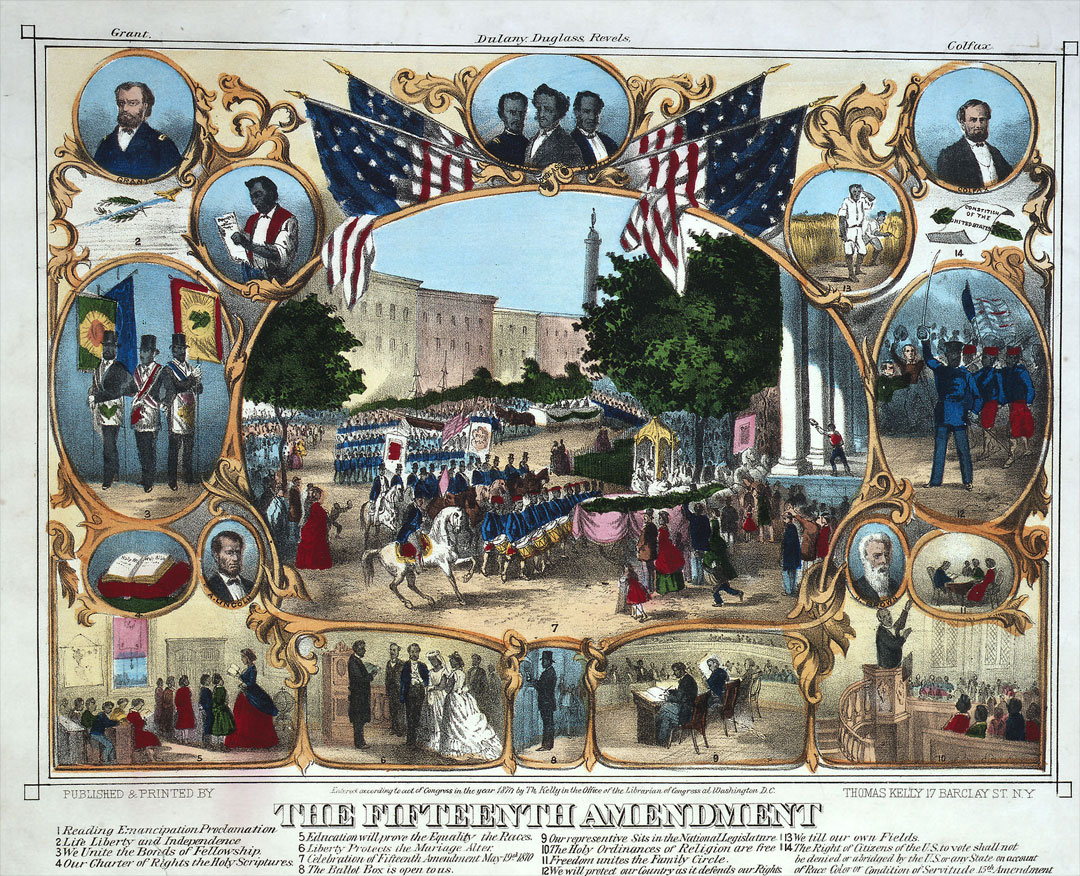15th Amendment Passed

15th Amendment Passed
Despite the fact that the 14th Amendment indirectly provided the vote to Afro-Americans, many Southern states continued to find ways not to permit Blacks to vote. Therefore, on the 15th of February, Congress passed the 15th Amendment which made this right explicit. Congress did not, however, include the right for women to vote in this amendment.
The 13th amendment had freed the slaves but did not guarantee them the right to vote. The 14th amendment granted full citizenship but that still did not guarantee the former slaves the ability to vote. Left to their own devices southern states were not going to welcome recently freed slaves as voters. This also created an interesting dilemmas . Under the Constitution slaves had been countered as 3/5 of person, with the slaves freed Southern states in theory gained additional representation. The Republican in Congress wanted to make sure that Republicans were elected in the States and one way to do that was to make sure African Americans voted.
The Congress debated the act at length, with advocates of Woman’s suffrage wanting to add the rights of women to the amendment. In the end Congress decided not to include women in the amendment- a decision that split the woman’s rights movement. The final amendment was passed by the House of Representatives on February 25, 1869 and by the Senate the day later.
To make that happen the Congress passed the 15th amendment that state:
Section 1. The right of citizens of the United States to vote shall not be denied or abridged by the United States or by any State on account of race, color, or previous condition of servitude.
Section 2. The Congress shall have power to enforce this article by appropriate legislation.
The first state to ratify the amendment was Nevada on March 1, 1869, it became part of the constitution when Iowa ratified it on February 3, 1870.
 >
>